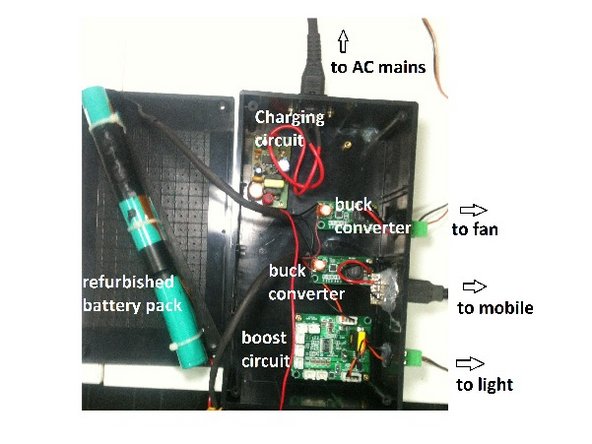What does it take to turn the lights on in poverty-stricken, rural communities? According to a group of researchers from IBM, the solution just might be e-waste. And they’re proving it by turning old laptop batteries into new, low-cost lights that can power homes and shops in the developing world.
A steady stream of power is something we take for granted in US, but roughly 40% of the world’s population doesn’t have access to reliable electricity. In India—where the study was conducted—the disparity is even more stark: 44.7% of rural households don’t have electricity and 43% are still using kerosene as their primary light source, despite the health and safety risks.
At the same time, e-waste production is mounting quickly in India—the country adds around 800,000 tons to the global e-waste stream every single year. Formal e-waste recycling efforts are just getting off the ground in India; most discarded electronics either end up in the dump or are recycled in the informal sector. LiIon battery recycling, the researchers noted, is especially challenging.
“Used laptop battery collection services around the world and in India have had limited success so far, with an estimated collection rate of less than 5%,” IBM’s research team reports. “Therefore, most discarded laptop batteries today end up in landfills or incinerators, which results in an adverse environmental impact.”

IBM’s team collected batteries that had been used in the business sector and tested them. Despite being used for at least 3 years, the batteries still retained 64% of their power capacity on average. That’s enough power to power a 3-watt LED light for four hours at a time. Rather than lose all that residual energy, the researchers decided to put it to good use as low-cost, modular, rechargeable lighting. They are calling the project UrJar—and, sold cheaply, they hope it will light up the world. Of course, UrJar will have to sort out a rural collection scheme for when those batteries really do run out. But if they do, those laptop batteries will experience a closed-loop lifecycle (use, reuse, and then recycle) that is extremely rare in an era of disposability.
“We show that UrJar has the potential to channel e-waste towards the alleviation of energy poverty,” the IBM team says, “thus simultaneously providing a sustainable solution for both problems.”
Check out the whole report from the IBM researchers here.




0 Comments